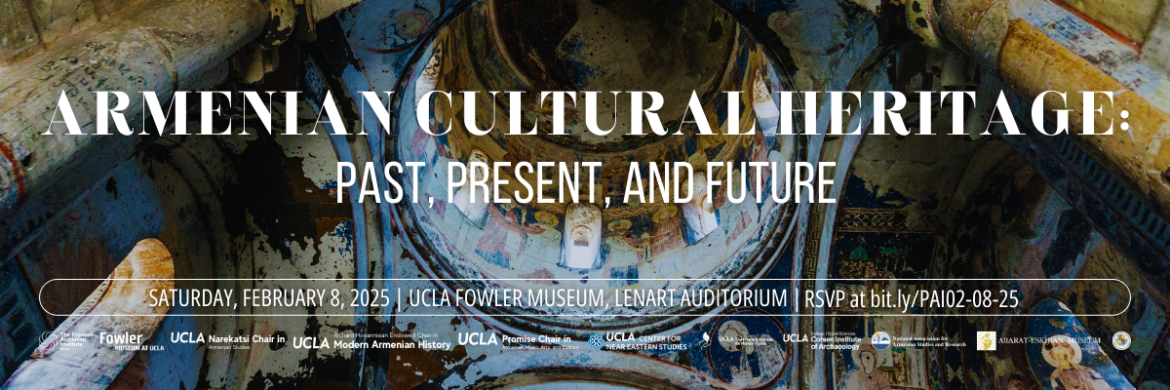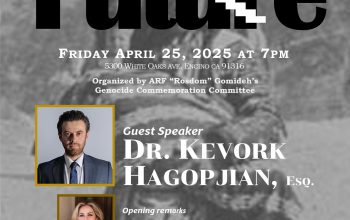LOS ANGELES, CA—The UCLA Promise Armenian Institute (PAI), in partnership with the UCLA Fowler Museum, will host a full-day conference focused on the protection and preservation of Armenian cultural heritage sites. The event, titled “Armenian Cultural Heritage: Past, Present, and the Future,” is scheduled for Saturday, February 8, 2025, from 8:00 AM to 7:00 PM at the Lenart Auditorium in the UCLA Fowler Museum.
The conference will bring together a range of experts to examine the history, current status, and future of Armenian cultural heritage in the South Caucasus and Eastern Turkey. Topics will include preservation efforts, strategies for monitoring and documenting cultural sites, and challenges posed by the region’s complex geopolitical landscape. Discussions will also address broader trends in cultural heritage studies, focusing on methodologies to safeguard these sites amid ongoing threats.
The event will feature panels on:
- The current condition of Armenian heritage sites.
- Efforts to protect and preserve cultural monuments.
- Documentation and monitoring techniques in conflict-prone regions.
- The future of Armenian cultural heritage in academic and policy contexts.
The conference is open to the public, but registration is required. Admission is free, and lunch and refreshments will be provided. Attendees can register at bit.ly/PAI02-08-25.
This event is co-sponsored by several UCLA departments and organizations dedicated to Armenian studies and cultural preservation, including:
- UCLA Center for Near Eastern Studies
- UCLA Richard Hovannisian Endowed Chair in Modern Armenian History
- UCLA Narekatsi Chair in Armenian Studies
- UCLA Promise Chair in Armenian Music, Arts, and Culture
- Promise Institute for Human Rights at UCLA Law
- UCLA Cotsen Institute of Archaeology
- National Association for Armenian Studies and Research (NAASR)
- Ararat-Eskijian Museum
- UCLA Armenian Students’ Association
The conference comes as cultural heritage preservation continues to face mounting challenges, particularly in regions affected by political instability and armed conflict. Experts are expected to provide insights into the role of international cooperation and academic research in mitigating these threats and promoting long-term conservation strategies.




